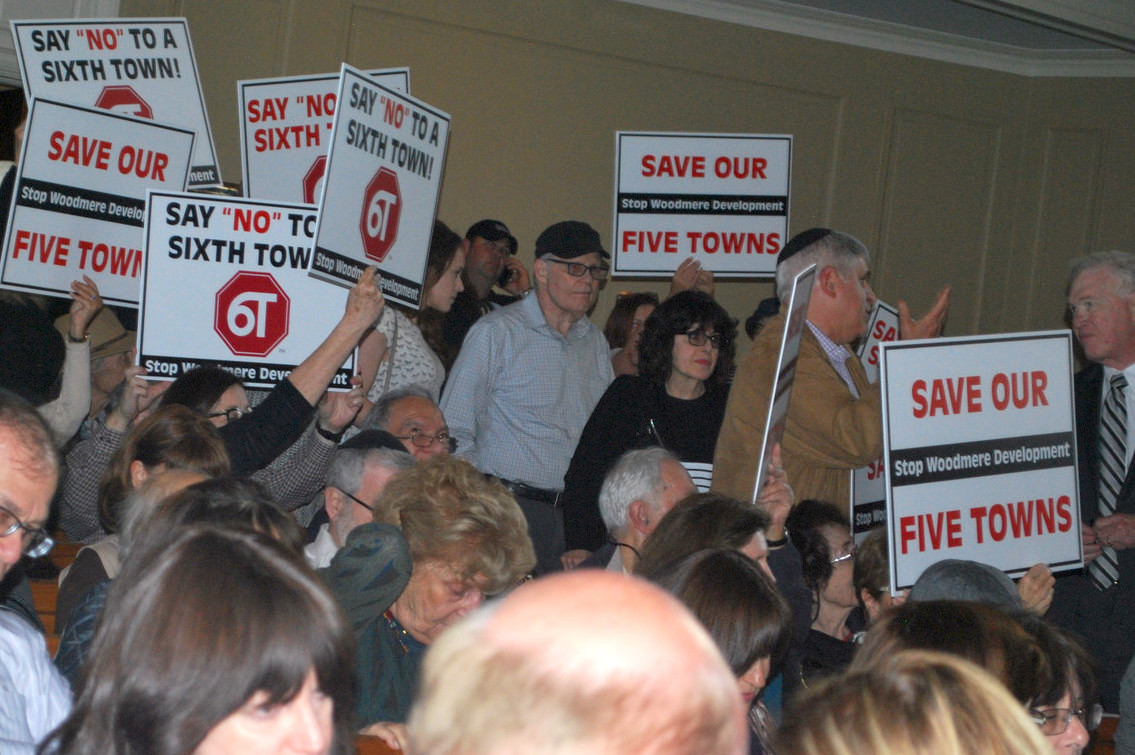Fight over Woodmere Club’s future drags Hempstead into court
The developers who purchased the Woodmere Club last year are suing the Town of Hempstead, claiming that the building moratorium the town enacted in 2016 is illegal.
In a complaint filed in Nassau County State Supreme Court on May 18, the plaintiffs, listed as WG Woodmere LLC; SG Barick LLC, and LH Barick LLC, are calling for the ban to be declared null and void because it lacks a “valid zoning purpose” and a “reasonable duration tied to the [moratorium] Board’s legitimate comprehensive planning actions.”
Enacted in November 2016, the moratorium mandated that privately owned golf courses within the town could not be developed until the town studied the impact of the proposed development, especially as it related to homes nearby. It was originally in effect for 180 days, but has been extended and remains in effect. Town officials noted that the extension OK’d last month was more than likely the final one.
“The moratorium is illegal, and we could have filed this lawsuit months ago,” said Efrem Gerszberg, one of the developers who bought the 118-acre club. Robert Weiss is the other. Planning to keep the club open for another four years, they are paying down the roughly $15 million debt it has accrued, and have hired Troon Privé to operate it. The purchase price was an additional $9.042 million cash, Gerszberg said.
The club is expected to close in 2022, and to be replaced by residential housing. How many homes will be built remains a matter of speculation, because the developers have not unveiled any plans.
“When we saw that the [town] council was choosing to pander to the public instead of following the law,” Gerszberg said of the moratorium, “we had no choice but to file a lawsuit to put an end to the council’s illegal actions.”
The plaintiffs are also asking that the moratorium be voided because the “[town] board failed to follow the required referral, notice and public hearing requirements for zoning actions.” They also want the court to prevent the board from extending the ban and enacting any other moratoriums affecting club property.
“We have no comment regarding pending litigation, other than to say we believe the town has acted lawfully and will defend those actions in court,” said Susan Trenkle-Pokalsky, a town spokeswoman.
The town is also discussing creating a Golf Course Coastal Residence Overlay District, which would restrict building on land that was described as “environmentally sensitive” by Councilman Bruce Blakeman at a May 7 community meeting. Blakeman additionally noted the wildlife, vegetation and flooding issues associated with the club’s land. The Inwood Country Club and the Golf Club at Middle Bay, in Oceanside, would also be included in the proposed district.
“We would immediately file a lawsuit in federal court for violating our constitutional rights … to overturn the new overlay district,” Gerszberg said. “The zoning allows for a 350-single-family home project on the golf course. We would also seek over $100 million in damages.” He pointed to a similar situation in Long Beach, where the developer Sinclair Haberman is seeking to recoup more than $50 million in damages and profits — as well as interest and legal fees — it claims it lost when Long Beach’s Zoning Board of Appeals revoked its permits to build three oceanfront condominium buildings on Shore Road in 2003.
“We’re are not putting the district on hold because of litigation,” Councilman Anthony D’Esposito said. The overlay district was not on the agenda of [last week]’s Town Board meeting.
Asked about the impact that the lawsuit could have on the residents of Woodmere and the villages of Cedarhurst, Lawrence and Woodsburgh, which border the club’s land, Mario Alex Joseph, president of the Five Towns Civic Association, said that it “should be a reality check to our Five Towns of who we are really dealing with.”
“Way to go, developers: You’re already costing us taxpayer money.”
Reclaim NY, a nonpartisan not-for-profit that raises awareness about home affordability issues, government transparency and education, tweeted last month that lawsuits are one of the reasons development on Long Island is so expensive.
“It’s an extra process, and there is a cost,” said the organization’s regional director, Michael Watt. “Lawyers are not working for free, and municipalities don’t want the wrong thing built.”
Gerszberg said that depending on the duration of the lawsuit, it could cost Hempstead town residents between $100,000 and $200,000, and if he and Weiss file suit to contest the overlay district, it could cost the town 10 times that much.

 47.0°,
Light Drizzle Fog/Mist
47.0°,
Light Drizzle Fog/Mist 




